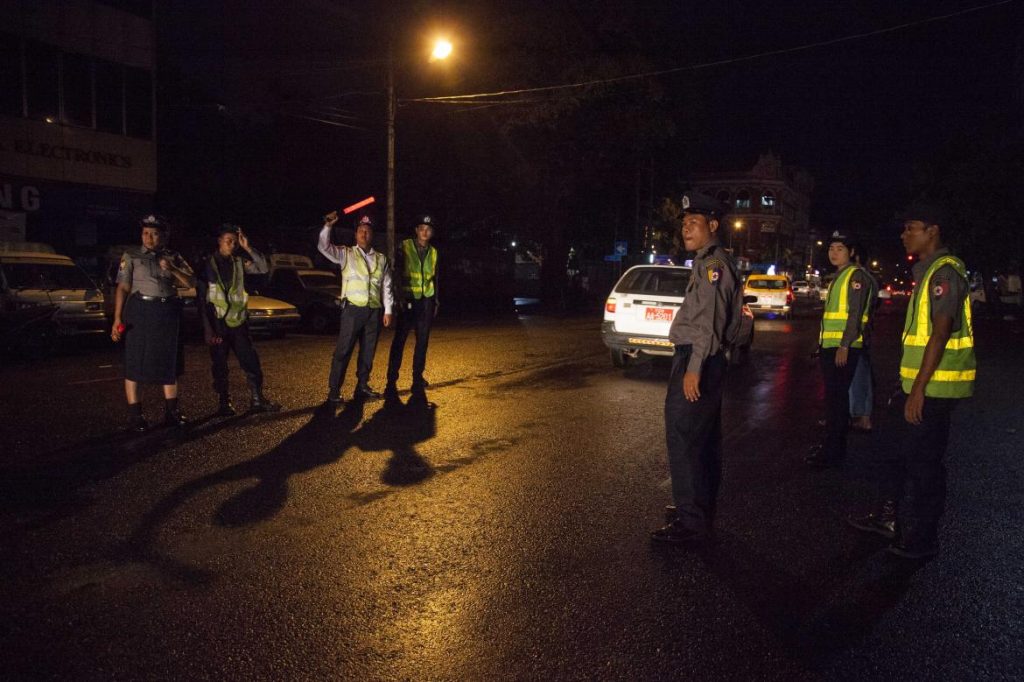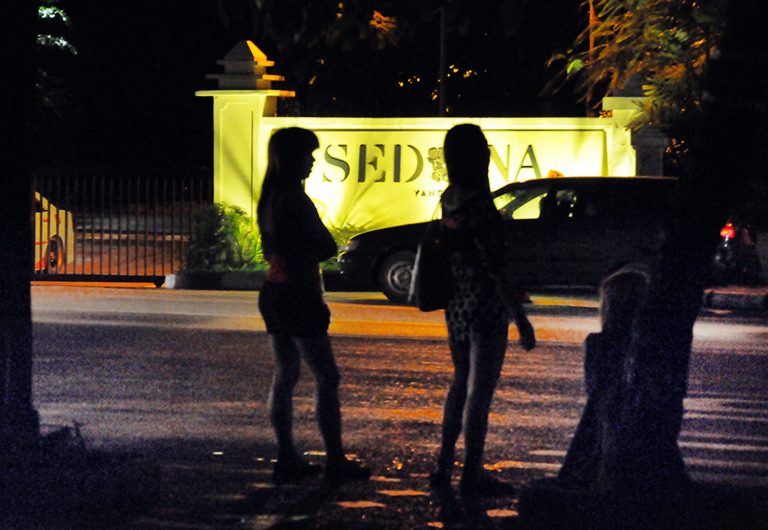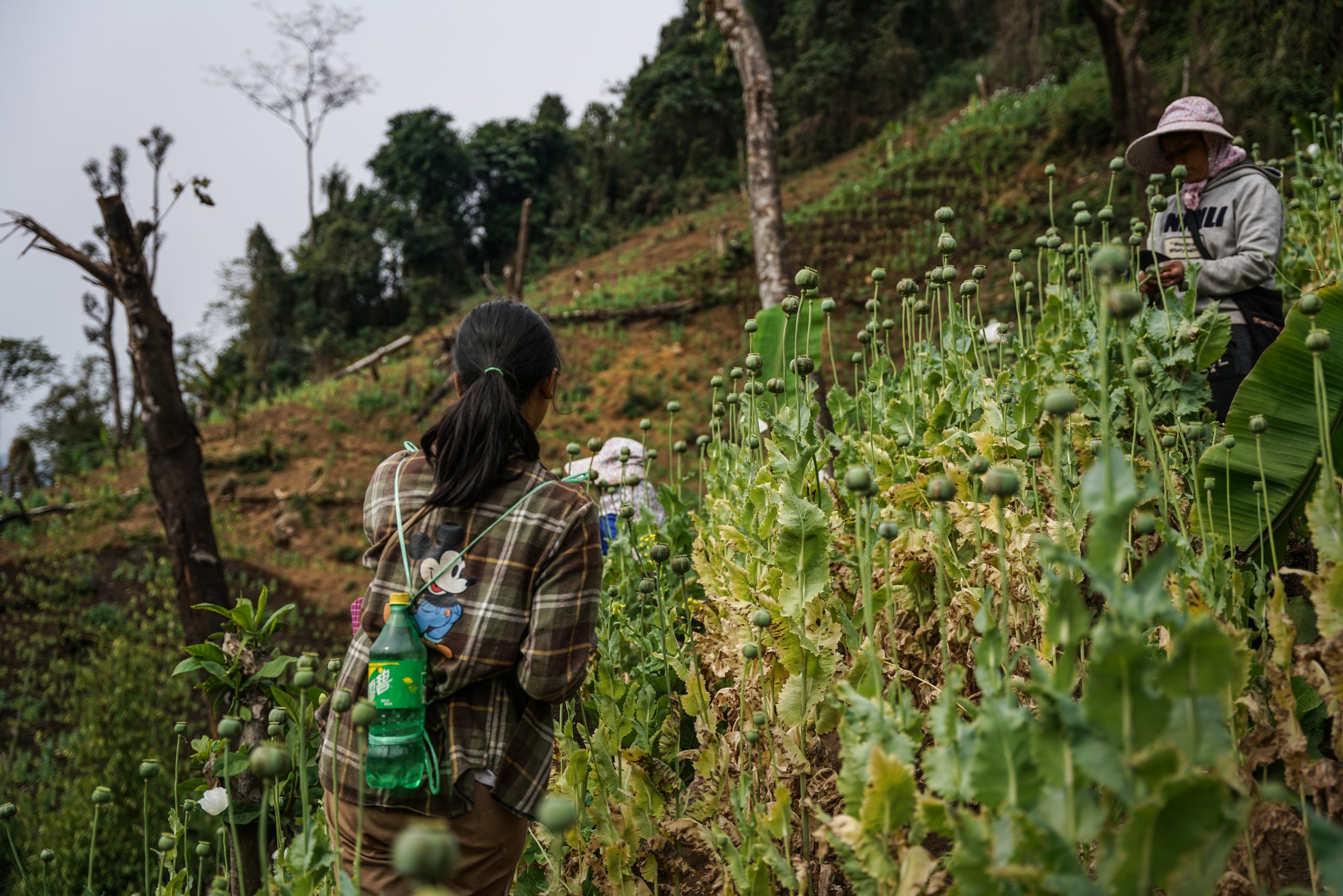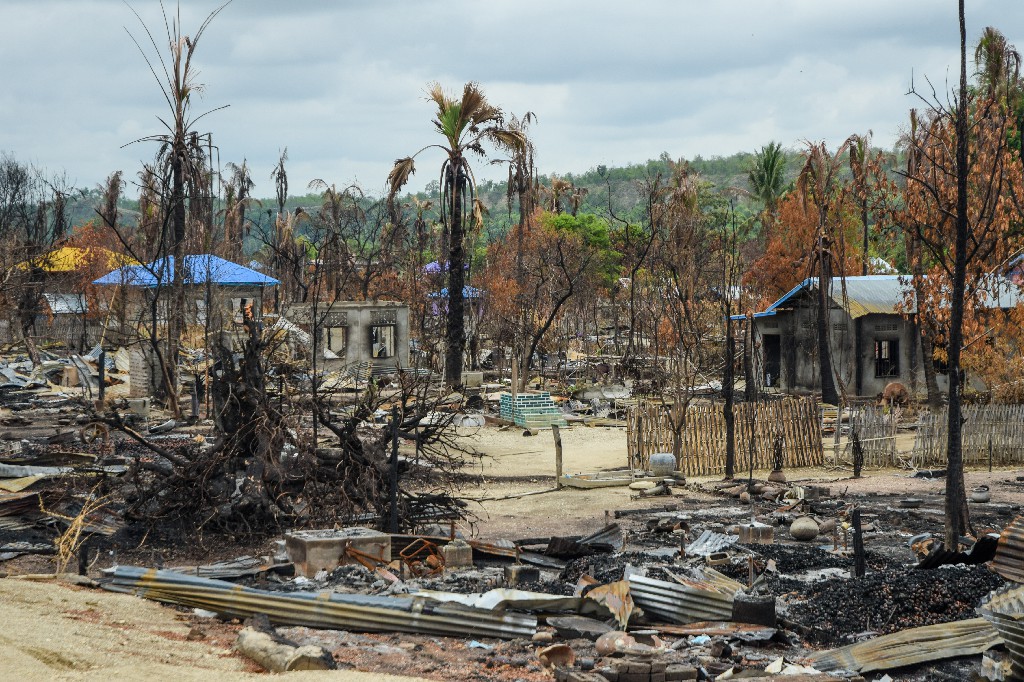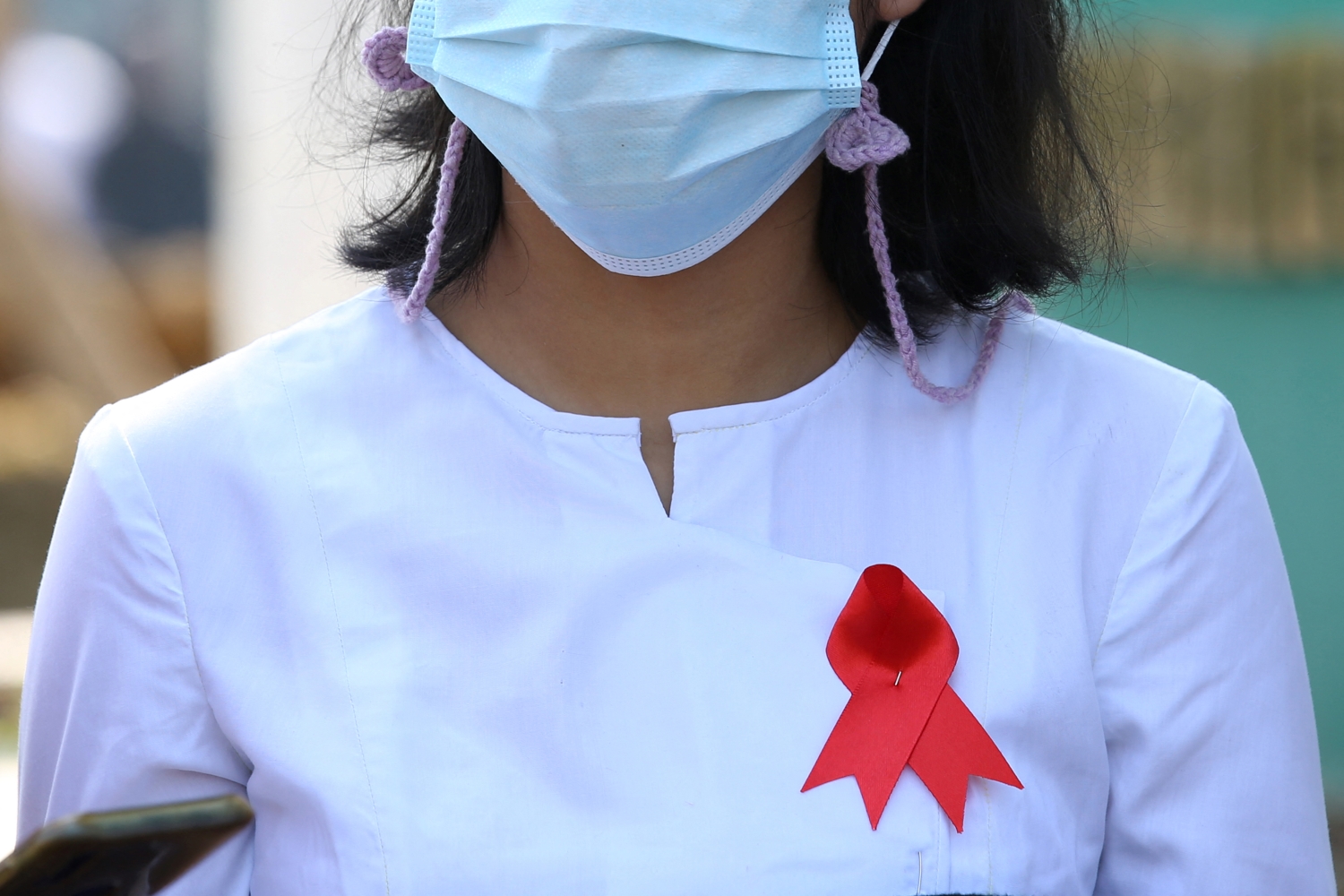The Myanmar Police Force is understaffed, under-resourced and unliked but there are plans to improve its image through better training in a joint project with the UN Office on Drugs and Crime.
By HTUN KHAING | FRONTIER
Photos J
It’s a common scene in movies: The frightened occupants of a house realise there’s an intruder on the premises. They call the police who are quickly on the scene and arrest the intruder.
Similar scenarios have been common in pro-government movies in Myanmar, but not in real life.
The image of the Myanmar Police Force has long been tarnished by a reputation for corruption and brutality. The world watched appalled as police bashed protesters at Letpadan just over a year ago. It is common knowledge that suspects are often assaulted after being arrested. Deaths in custody are not unknown. Sex workers, gay and transgender suspects have been sexually assaulted at police stations, and there have been incidents when the police were curiously reluctant to intervene in incidents, such as when communal violence raged at Meiktila in March 2013.
“The calibre of Myanmar police is the lowest in the Association of Southeast Asian Nations, let alone the international level,” said an MPF officer who participated in a US$10 million police reform program launched by the European Union in late 2013 that included training in crowd management and human rights. The officer spoke on condition of anonymity.
jtms_patrolpolices-18.jpg
Support more independent journalism like this. Sign up to be a Frontier member.
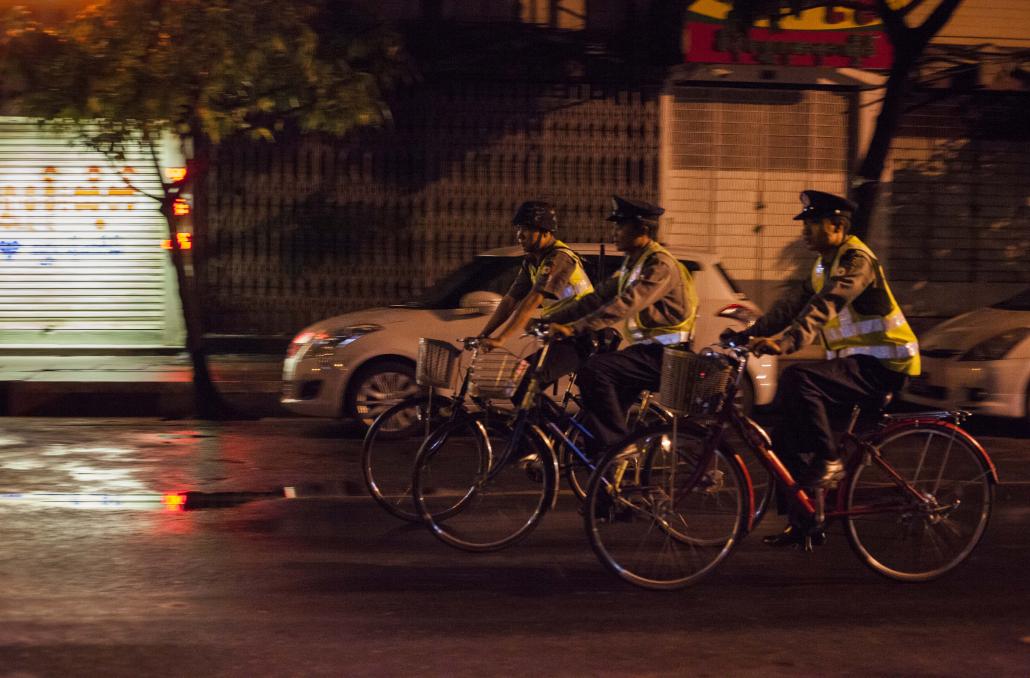
After the National League for Democracy government took office it launched a reform initiative for its first 100 days that included an emphasis on the rule of law and raising the image of the MPF.
It is unclear if the 100-day plan will bring significant change to the MPF, one of the agencies under the military-controlled Ministry of Home Affairs.
“The job of a policeman is clamped between two problems like a piece of meat in a sandwich,” said an MPF officer who took part in the EU training program and who asked not to be named. He was referring to the pressure felt by many MPF members about being caught in the middle between the demands of the government and the public.
It is not easy to join the MPF. Recruits must be in good health, aged between 18 and 27 and have completed primary school. The training course for a recruit is 24 weeks. Members of the MPF are on call around the clock. Some ride their own motorbikes for use in their work.
For those who join the force, earning enough to make a living or support a family can be a challenge.
The starting salary in the MPF is K135,000 (about US$115) with allowances, up from less than the equivalent of $100 two years ago. “It is difficult to support a family on this salary and make ends meet,” said a Border Guard Police member in Rakhine State, who asked not to be named.
jtms_nationalistsprotestuse17.jpg
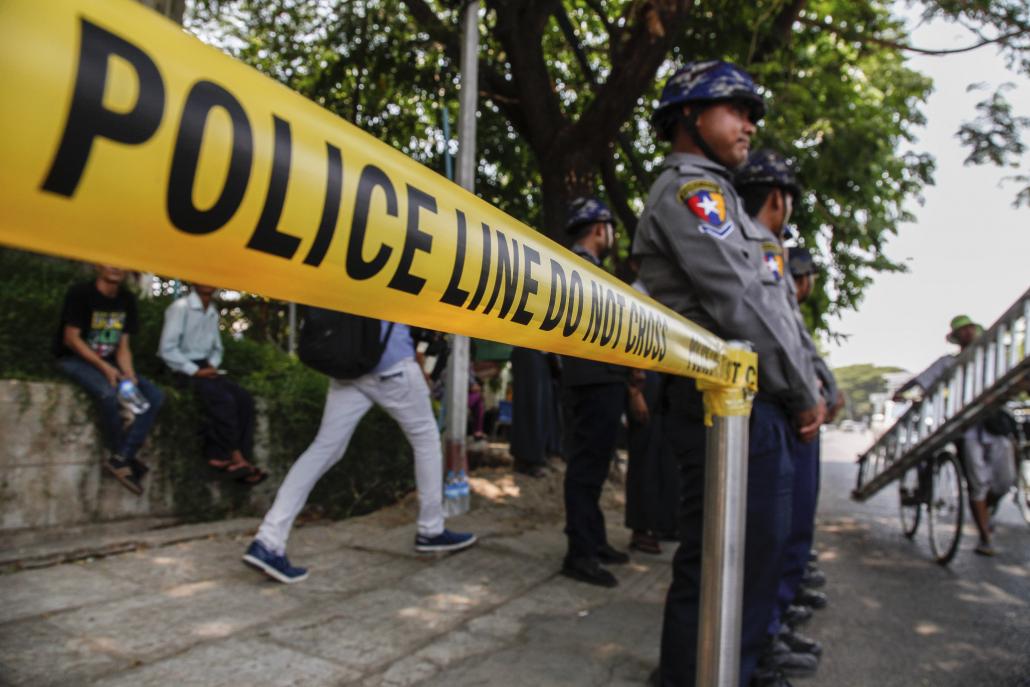
Police say they sometimes have to spend their own money to buy food for detained suspects because the allowance provided by the government is inadequate. Until 2012, the government allocated K30 a day for food and water for detainees in police custody.
Police say that even though the allocation was raised in March 2012 by 16 times to K480 and 82 pyas a day for each detainee, it is still not enough. Most detainees can rely on food supplements from relatives but if that is not possible, police often ensure they have enough to eat, at their own expense.
The workload on members of the MPF can be heavy, as the force is badly understaffed. The previous government said in June 2014 that the MPF had 74,165 personnel and needed to be more than doubled, to 160,000, to be in line with international policing standards. The minimum standard recommended by the United Nations is 222 police officers for every 100,000 citizens, or about 1:450.
The Yangon Region police chief, Police Brigadier-General Win Naing, has been quoted as saying that the police-citizen ratio in the country’s biggest city is 1:1,274.
jtms_patrolpolices-11.jpg
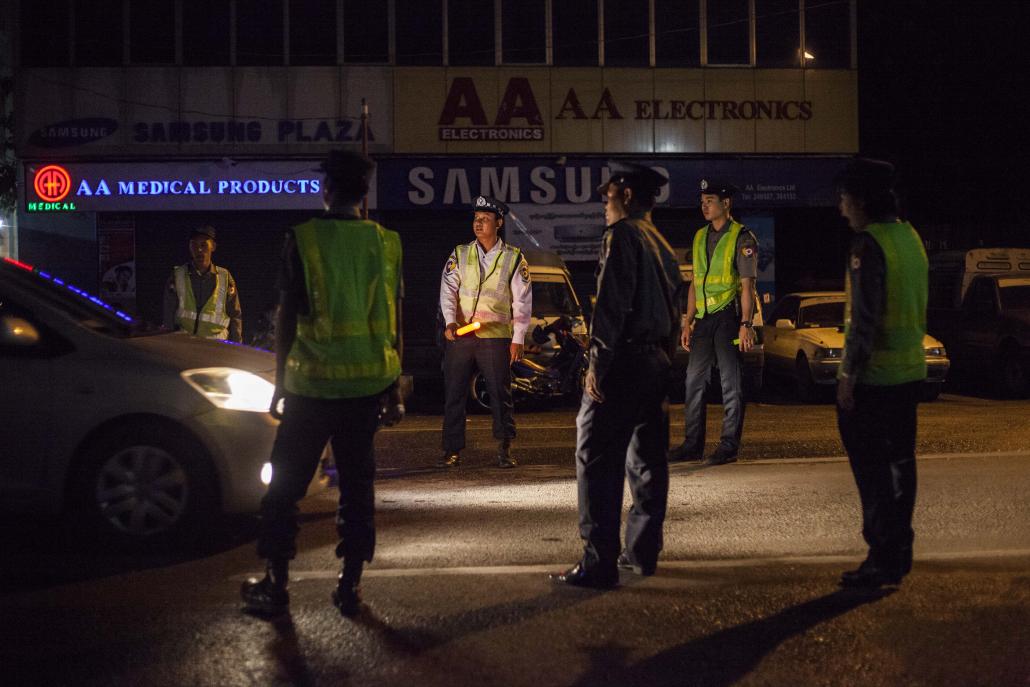
Salary rates are one reason why the MPF finds it difficult to attract enough recruits. Sources within the MPF say the previous government tried to overcome the staffing shortage by issuing an unlawful instruction that imposed monthly recruitment quotas on each police station.
Although the move led to an increase in the number of recruits, many were unqualified, the sources said.
“The rule that a police station must sign up a certain number of recruits each month or face action has resulted in too many unqualified people joining the force,” an MPF officer told Frontier anonymously in an interview on social media.
Police who are under-pressure because of a heavy workload and a lack of resources are likely to make mistakes. If that happens they face the prospect of harsh action because as well as being charged under the Penal Code they can also be punished under police disciplinary law, which is based on military disciplinary law.
As well as exporting its system of law to the MPF, the Tatmadaw also sends officers to the force. This causes resentment among career MPF officers because it blocks their opportunities for promotion.
The direct transfer of Tatmadaw officers to the MPF continued during the previous U Thein Sein government. Official documents show that at least 73 Tatmadaw officers were transferred to the public service, including four majors appointed to senior positions in the MPF between 2011 and 2012.
Even before it was elected to government, the National League for Democracy had been pushing for the reform of the MPF and supported the training program begun by the EU in late 2013.
The national police chief, Police Major-General Zaw Win, has acknowledged criticism of the MPF, including during situations when it used excessive force against protesters or looked on during violent incidents.
Zaw Win said the police were criticised for failing to intervene at Meiktila when dozens of people were killed and thousands of homes destroyed by arson. Mistakes like that do not need to be repeated, he said at a ceremony at the Yangon regional government offices on May 21.
“You don’t have to wait for orders when a man is killing another man in front of you,” he said at an event to promote the role of the MPF during the 100-days campaign.
A few days earlier, Zaw Win had announced a project to upgrade police training at an event held jointly by the MPF and the United Nations Office on Drugs and Crime in Nay Pyi Taw.
The project, due to last until December, followed a joint review of the police training system.
In addition to the training curriculum, the review also made recommendations on recruitment and resources management.
The project calls for a five-year plan to reform the MPF to be finalised by year’s end.
Translated by Aung Kyaw Oo.


